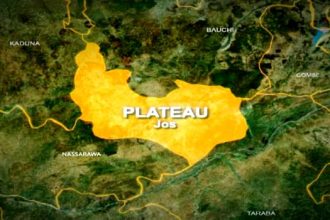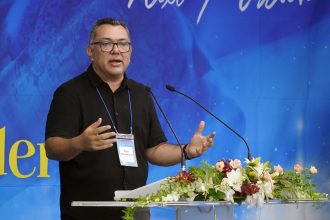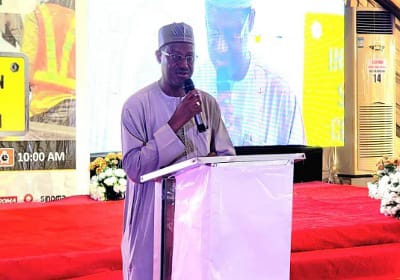By Kunle Sanni
The Minister of Housing and Urban Development, Ahmed Dangiwa, has called for the adoption of green, sustainable, and climate-smart housing designs and technologies in Nigeria’s housing industry.
Speaking at the 2024 Archibuilt Exposition, organized by the Nigerian Institute of Architects (NIA) on September 10, 2024, at the Rainbow Event Centre in Abuja, Dangiwa urged industry professionals to embrace innovation and develop alternative, sustainable solutions to address the country’s housing challenges.
Dangiwa emphasized the need for the housing sector to shift towards environmentally friendly practices, highlighting the importance of incorporating modern, climate-resilient designs that contribute to sustainable urban development.
He encouraged architects and other professionals in the built environment to lead the way in creating solutions that reduce the environmental impact of housing, align with global sustainability goals, and meet the growing demand for affordable and climate-smart housing in Nigeria.
“We have seen transformative ideas presented at previous expositions, from using sustainable building materials to energy-efficient designs, water conservation techniques, and zero-emission construction technologies.
“The ongoing conversations will shape the future of construction in Nigeria and resonate globally. Innovation, built on technology and equitable resource utilization models, is what we need,” he said.
The Minister highlighted the critical role of architects in achieving SDG 11, which calls for sustainable cities and communities, stating that architects have the power to design urban spaces that are inclusive, resilient, and adaptive to future needs.
“We must ask ourselves: How can we ensure that the cities we build are not only environmentally sustainable but also inclusive and socially equitable?
“How can we foster urban ecosystems that promote healthy living, economic development, and environmental stewardship while being groundbreaking enough?” he asked.
He also urged architects to rise to the occasion in addressing rapid rural-urban migration and astronomic population growth, which will strain infrastructure.
He noted that African states have struggled to respond to the challenges of rapid rural-urban migration and the surging population, estimated to reach 2.5 billion by 2050, with Nigeria alone projected to account for over 400 million, making it the third-largest country globally.
“As architects, how do we respond to this scenario of an ever-increasing strain on our natural resources?” he asked.
The Minister suggested that the answer lies in African states deploying homegrown solutions with core innovation and beginning to interrogate current and future needs.
On the use of local and indigenous materials as a way of preserving cultural identity, he said, “Optimizing the use of local materials like bamboo, laterite, and compressed earth blocks will help reduce carbon footprints while maintaining the structural integrity of our buildings.
“Under the Renewed Hope Agenda of His Excellency, President Bola Ahmed Tinubu, we are committed to supporting initiatives that promote sustainable housing, infrastructure, and urban development.”
He also revealed that the 3,112 Karsana Renewed Hope City and all designs for the other six Renewed Hope Cities in each of the six geopolitical zones are currently undergoing the process of EDGE Green Certification.
He assured that the focus on green practices across the Renewed Hope Estates being developed nationwide will lead to the creation of the largest green footprint in the history of housing development in the country, and perhaps Africa.
The Minister reiterated efforts by the Ministry to establish six Building Materials Manufacturing Hubs, one in each of the nation’s geopolitical zones. He added that the Task Team set up to draw up the modalities for their establishment has recently submitted its report, which is being reviewed for implementation.
Other dignitaries at the event included former Vice President and Special Guest of Honour, Arc. Namadi Sambo, who called for the need to reimagine cities not just as static collectives but as dynamic ecosystems that should evolve with the times.
“We must invest in cities that promote mobility, reduce congestion, and improve the quality of life for the people. We must also focus on mixed-use neighborhoods that promote togetherness,” he said.
Arc. Sambo urged the architects to set up a think tank that would periodically update the Minister of Housing on innovations for the sector that are practical and implementable for the growth of the housing sector, especially through the delivery of sustainable and affordable housing.
Earlier, the President of the Nigerian Institute of Architects, Arc. Mobolaji Adeniyi, stated that the event would showcase cutting-edge products, ideas, and technologies that will redefine the built environment, noting that the goal is to explore the intersection between architecture, technology, and innovation.







